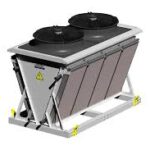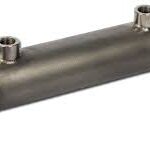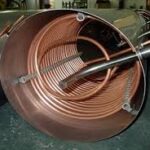Boiler Coils
Boiler coils are heat exchangers made of metal tubes arranged in a coil pattern, used in boiler systems to transfer heat from combustion gases to water or steam. They are typically made from heat-resistant materials like stainless steel or copper. Boiler coils are essential for generating steam or hot water for heating and industrial processes, and they come in two main types: water-tube and fire-tube boilers. Proper maintenance is crucial for their efficiency and longevity.

Boiler Coils
Functions of
- Heat Absorption: The boiler coil absorbs heat from the combustion gases produced by burning fuel. These gases flow over or through the coils, depending on the boiler design.
- Heat Transfer: The heat absorbed by the coils is transferred to the water or steam circulating within the tubes. This transfer is facilitated by the conductive properties of the coil material, which efficiently conducts heat.
- Steam Generation: As the water inside the coil absorbs heat, its temperature increases, eventually reaching its boiling point and converting into steam. This steam can then be used for various heating applications or industrial processes.
- Continuous Circulation: The water or steam circulates continuously through the boiler system, with the coils constantly transferring heat to maintain the desired temperature and pressure.
Boiler Coils
Specification Details on
Boiler Coils
Advantages on
- Efficient Heat Transfer: The design of boiler coils allows for maximum surface contact between the heat source and the fluid, leading to efficient energy use.
- Compact Design: Boiler coils are designed to fit within a compact space, making them ideal for applications where space is limited.
- Rapid Response: They can quickly reach the desired temperature and generate steam, which is essential for processes that require immediate heat availability.
- Durability: Constructed from materials like stainless steel and copper, boiler coils can withstand high temperatures and pressures, ensuring long-term reliability.
Boiler Coils
Types of
- Water-Tube Coils: In these coils, water circulates inside the tubes and is heated by external combustion gases. This type is suitable for high-pressure applications.
- Fire-Tube Coils: Hot combustion gases pass through the tubes, which are surrounded by water. This configuration is typically used in low to moderate pressure applications.
- Helical Coils: These coils are wound in a helical shape, providing a compact and efficient heat transfer surface. They are often used in applications requiring high efficiency and compact design.
- Fin-Tube Coils: Tubes equipped with fins increase the surface area for heat transfer, enhancing efficiency. They are used in applications where maximizing heat transfer is critical.
Boiler Coils
Application of
Other Heat Exchangers We Manufacturer
Dry Cooler
Dry Cooler is a type of heat exchanger that uses ambient air to cool a fluid, typically water or a water-glycol mixture, without evaporating the fluid. It operates on the principle of sensible heat transfer

Stainless Steel Heat Exchanger
Stainless Steel Heat Exchangers are devices that use stainless steel as the primary material for transferring heat between fluids. They are valued for their corrosion resistance, durability in high temperatures and pressures

Copper Heat Exchangers
Copper Heat Exchangers are devices designed to efficiently transfer heat between two fluids or between a fluid and a solid surface. They utilize copper, a highly conductive metal known for its excellent thermal properties.

Marine Heat Exchanger
Marine Heat Exchangers are essential for cooling engines, generators, and onboard equipment using seawater or freshwater. Made from corrosion-resistant materials like titanium or cupronickel

Tube in Tube Heat Exchanger
Tube in Tube Heat Exchangers consists of two concentric tubes where one fluid flows through the inner tube and another fluid flows through the annular space between the inner and outer tubes.

